Christian Glass called 911 when his car got stuck – then police shot him dead. Now, his parents need justice
Christian Glass, 22, was out for a night drive in the Colorado mountains when his car got stuck. He called 911 and less than two hours later, he’d been shot dead by officers. His grieving parents tell Sheila Flynn of their fight for justice as two officers face charges in his killing
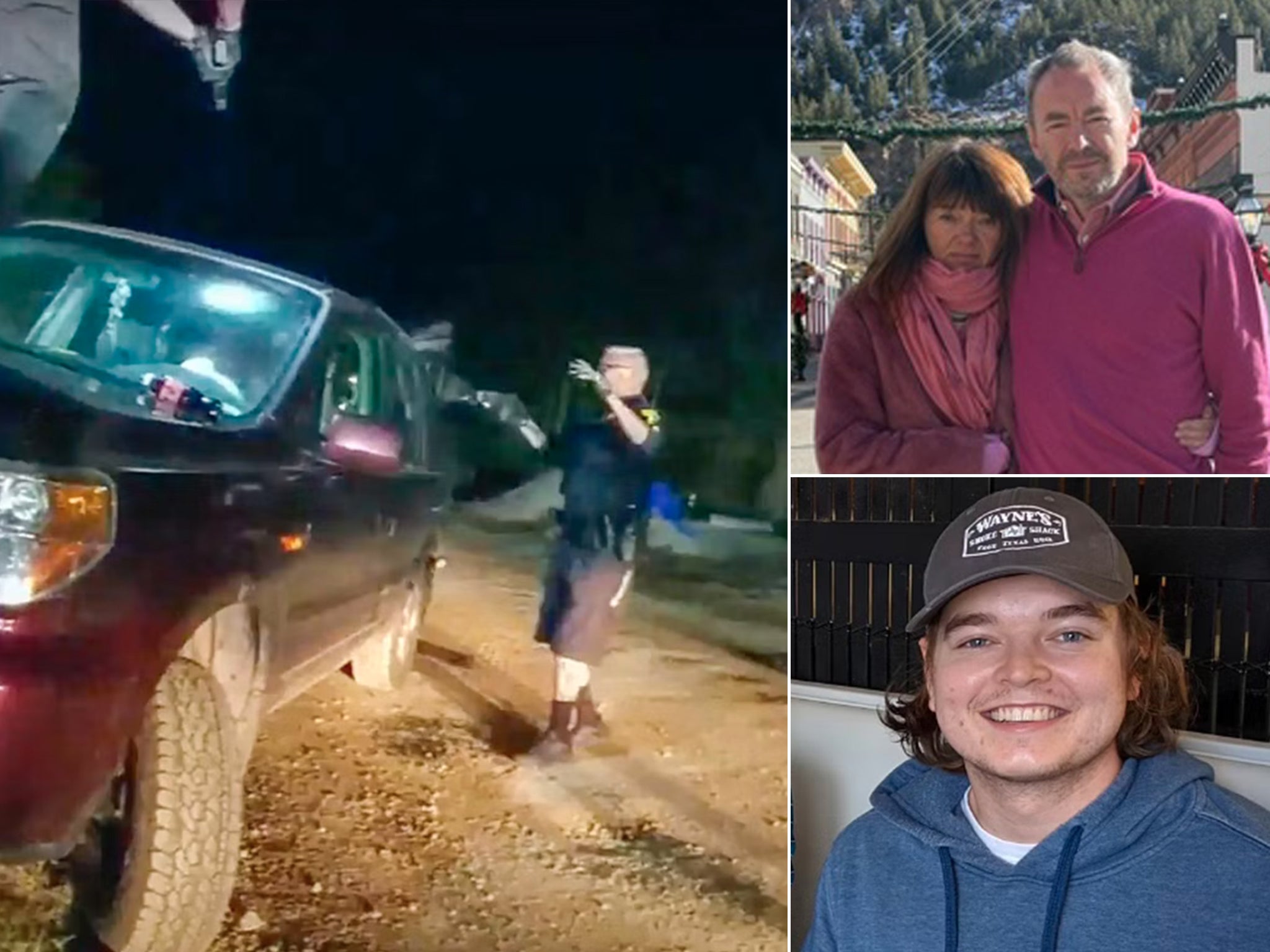
A few years ago, babyfaced teenager Christian Glass burst into his parents’ Colorado home and asked in his English accent: “Where do you stand on Black Lives Matter?”
Sally and Simon Glass, from England and New Zealand respectively, had not raised their three children in a news-obsessed household, so they were slightly surprised by and proud of their son’s strong sense of social justice.
“Isn’t that bizarre?” says Sally, absent-mindedly fingering a religious medal Christian kept in his car as she recounts this story. “And then he followed in George Floyd’s footsteps – I mean, literally.”
Christian, 22, was shot dead by police in June after calling 911 for help when his car became stuck on a Colorado mountain road. He was killed in a tragic and weird confluence of events so incomprehensible that it is difficult to put down on paper.
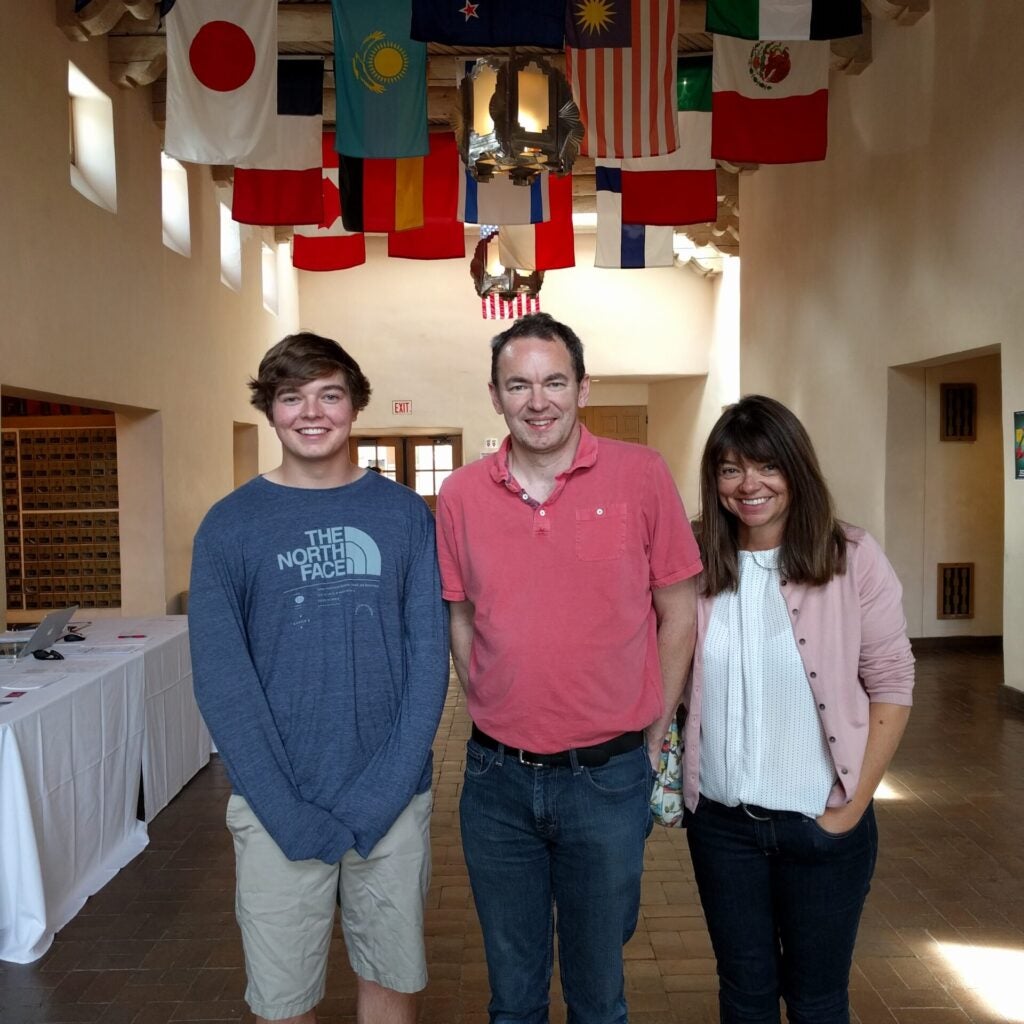
Two officers have been charged in the killing of Christian, which took place when he’d committed no crime. Officers had been on scene talking with him for more than an hour and Christian never left his car. Andrew Buen and Kyle Gould made their first court appearance on Monday at Clear Creek County Courthouse, just minutes from the site of the killing and just over an hour from the Glass family home.
Simon and Sally were resolutely present in court, holding hands and wearing Christian’s favourite colour, pink, as the now-fired officers arrived before the judge. A tearful Sally shook her head as the court discussed and ultimately approved Gould’s request for travel over the holidays to be with loved ones. The Glass family had objected, pointing out through the prosecution that they would never have Christian home for Christmas again.
When Buen and Gould exited the courtroom, Sally doubled over, wailed and “nearly threw up,” she tells The Independent afterwards. But she and Simon mustered the strength to sit down and talk about Christian because, despite their grief, they are fiercely committed to getting justice for their son and for the world to know the circumstances leading to his death.
The courthouse is in Georgetown, one town over from Silver Plume, the tiny mountain enclave Christian was driving near on a Friday night last June. Setting and location are important in this story: the roads are rocky, narrow, tiny, and incredibly dark after sunset. For people not born and raised in the area, they can be scary, particularly at night. Christian tried to turn at some point and got his car stuck on a rock before midnight. He called 911 and was unfailingly polite on the phone but clearly distressed.
When the operator asks Christian if there are any weapons in the vehicle, the amateur geologist and artist tells her about rock tools he has with him, offering to throw them out of the car when first responders arrive to make the officers feel safer. He describes the items as “two knives, a hammer and a rubber mallet ... I guess that’s a weapon?”
That eagerness to be helpful was typical of Christian, says Sally, describing her son as a “very, very honest boy.”
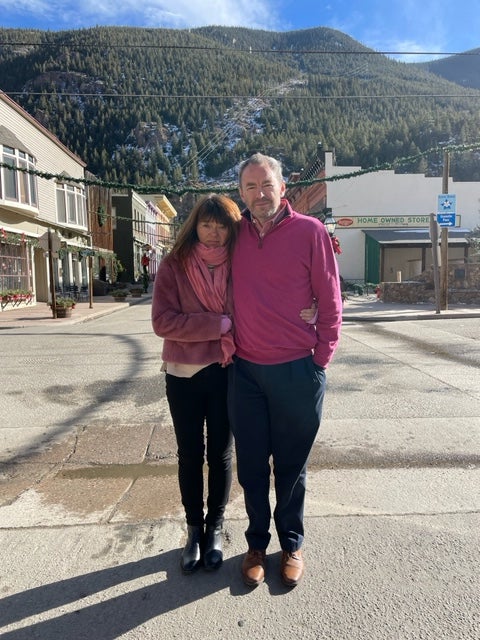
“I kind of almost feel that honesty was part of the reason he got killed,” she tells The Independent, adding: “I wish to God he ... [would have] said, ‘No, I don’t have weapons in my car,’ because he didn’t. They weren’t weapons, because we don’t carry weapons. But he’s so worried about not being totally transparent.”
Honesty, creativity, and passion for sports and justice are some of the character traits that keep coming up as Sally and Simon talk about their son. Christian was born in New Zealand and lived there until age nine, when his family moved to England before relocating to the US in 2010. He was a citizen of all three countries.
Even while in New Zealand, his accent tended to sound more English, taking after his Canterbury-born mother. Also like Sally, Christian had ADHD. He was bright and enthusiastic but abhorred sitting still, preferring instead to actively explore his myriad interests.
As Sally sits in the basement of the Georgetown library, she points to mosaics outside, noting Christian’s love of art. He wanted to pursue it professionally but Sally warned him of the notoriously difficult artist’s lifestyle. She remembers, ruefully, how she cautioned that “most people [only] make a lot of money from art once they’re dead.”
Instead, Christian continued indulging his artistic endeavours as an amateur after high school while training as a chef and working in eateries near the Glasses’ Boulder County home. He could also code and was looking with his parents for the best accreditation programme around so he could enroll. He had recently asked his roommate, whose family owned the property, if he could stay for another year.
“He said, ‘You’re the best flatmate I ever had ... if you want to stay for another five years, you stay,’” Sally tells The Independent. “And that made Christian really happy.”
He’d faced teasing at school from other boys for his foreign accent, Christian’s parents say, but “the girls adored him.”
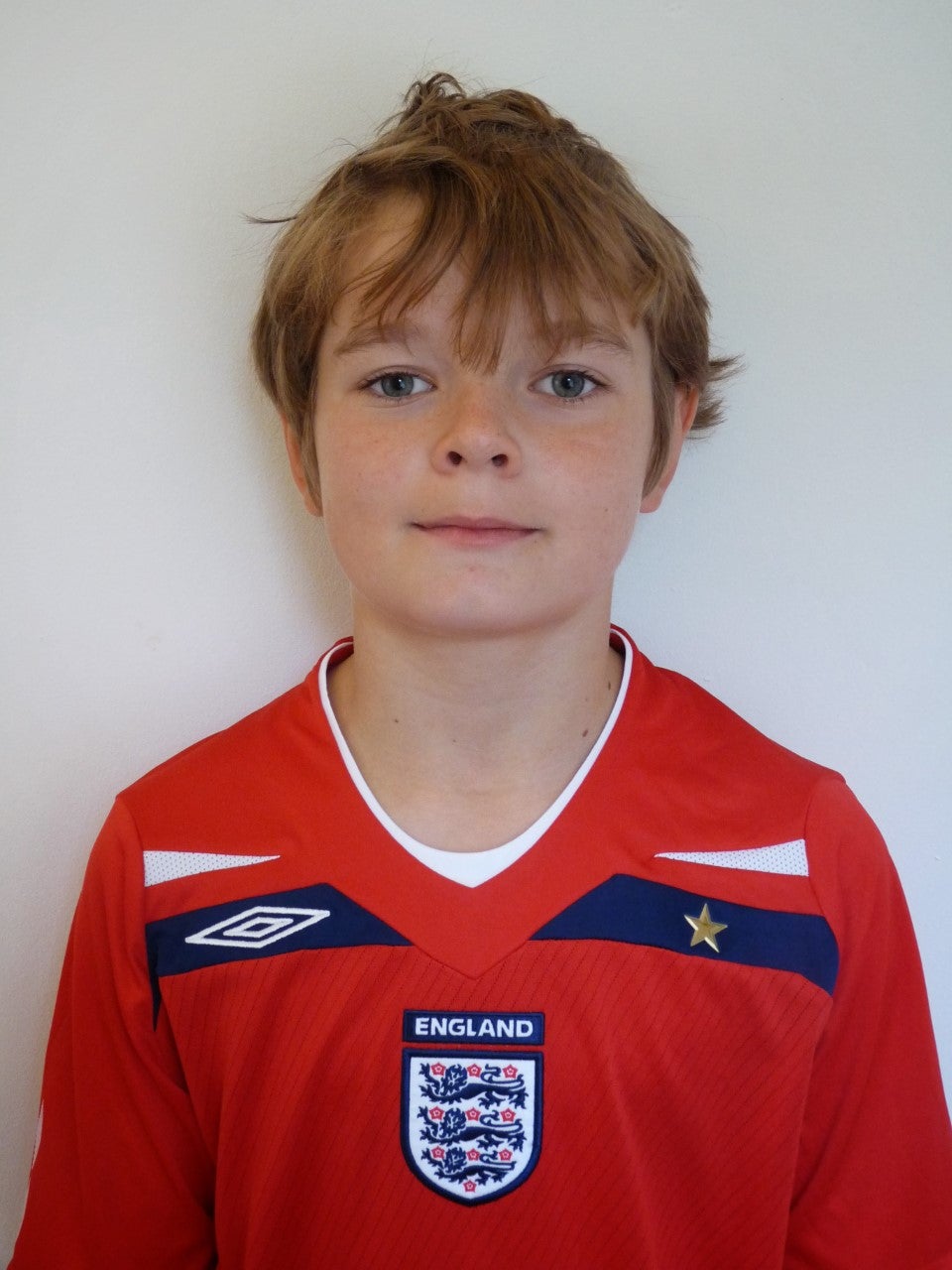
He had a best friend and a social group around Boulder and would invite people over for parties in the family’s large basement. As teens socialised downstairs, Christian could often be found climbing out the window to hang out on the roof with just a few friends instead.
Like his mother, Christian was prone to sensory overload, says Sally.
“I’m always turning the lights off in the house ... I’m quite noise sensitive, as well - like, I don’t like loud. I found the cinema too loud,” she says. “I spend my life outside riding horses, walking dogs, and I’m on my own a lot. So he was the same, sensory sensitive.”
Christian also struggled with depression and started taking Ritalin for ADHD. He’d previously gone off the medication because he didn’t like the side effects. On the night of the shooting, he’d just returned back from Moab, Utah, nearly a six-hour drive from Boulder County. His flatmate says he took a Ritalin pill and Sally believes this may have given him a burst of energy.
She says that when Christian was feeling antsy, he’d often go for a drive: “He just loved the peace. He loved his music.”
The Glass family believes Christian may have driven to his favourite mountain, then kept going and gotten lost. Whatever his route, the 22-year-old was stuck in Silver Plume by 11.21pm on 10 June, when he dialed 911 for roadside assistance. In the recorded call, he tells the operator about the items in the car and stays on the line with her until police arrive, making a few strange statements, including references to Skinwalkers, figures from Navajo mythology he’d been studying.
“I think his imagination ran away with him,” Sally tells The Independent.
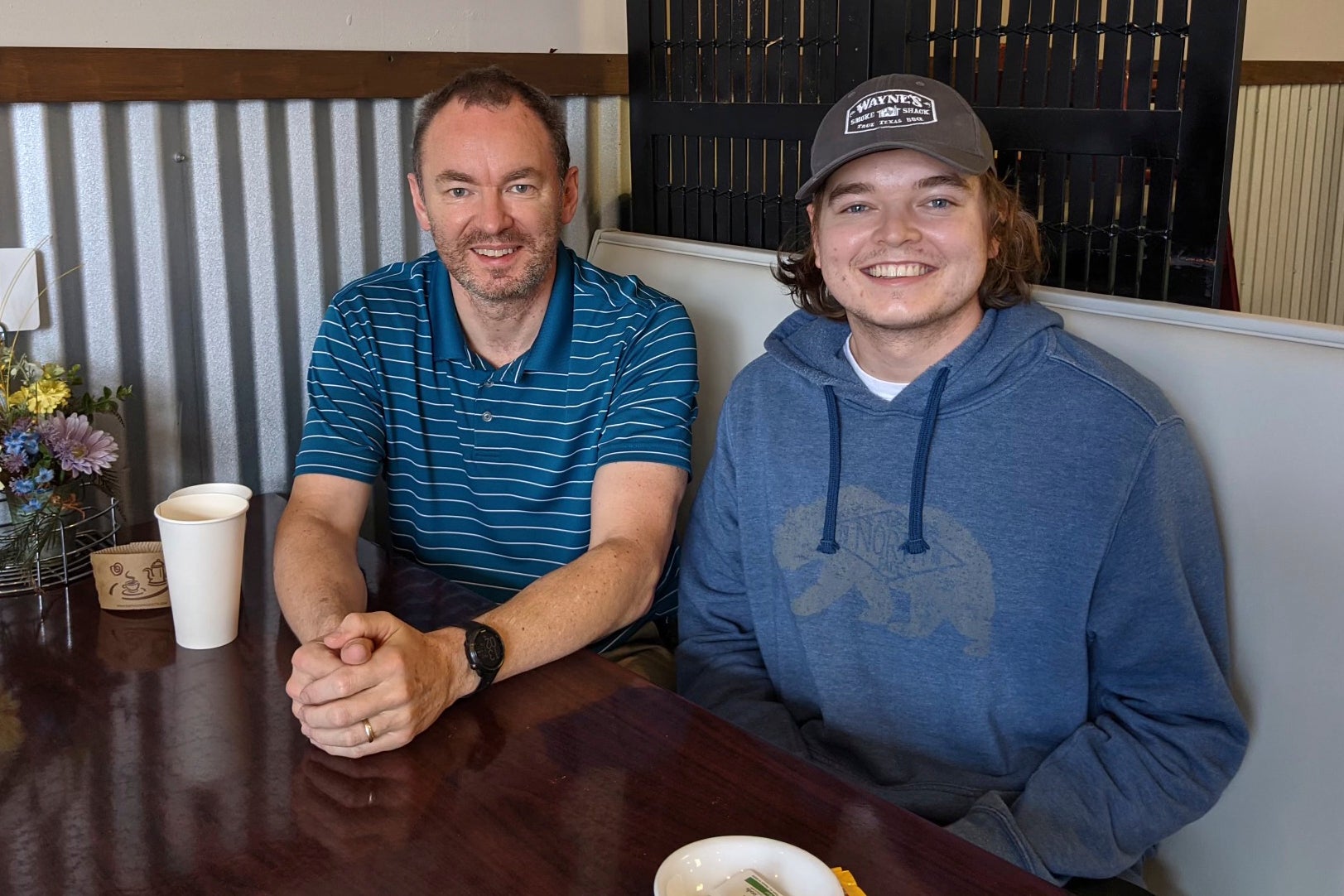
Christian had no history of mental breaks or outbursts. An autopsy confirmed that Christian had only trace amounts of alcohol and THC, the active component in marijuana which is legal in Colorado, in his system. Both were well within the legal driving limit, the Glasses’ lawyer says, as well as amphetamine, a component of Ritalin.
When the officers turned up, the situation escalated fast and for seemingly no reason whatsoever. After Christian offers to throw any concerning items out of the car, the cops shout at him not to. They’re aggresive and armed; it’s not long before seven officers from five agencies are surrounding Christian’s car with guns drawn.
Christian is clearly terrified and is heard pleading and crying from the driver’s seat, which he never leaves. He makes no aggressive movements or statements. He tells the cops he doesn’t want to leave the car, and he’s posing no threat to them from within it. He even suggests the cops tow the car, with him in it, to a police station.
“This is the only way I can be safe,” he says desperately. “Why can’t you understand that?”
At no point do the officers seem afraid for their personal safety in the body camera footage. They bark orders at Christian and draw their guns because of the small knives, just a few inches long, in the car which Christian had already told them about and offered to throw out.
They alternately yell at Christian, cajole, laugh and chat amongst themselves, with one officer suggesting that “cute girls” on scene try to coax him out of the car. All of this happens just minutes before Christian is shot dead.
The bright lights and shouting would have presumably assailed his sensory sensitivity. His parents wonder aloud if Christian’s passion for social justice could have been “one of the reasons he was so terrified,” muses Simon.
Watching the body cam footage, it’s hard to figure out just why the officers were so determined to get Christian, who they did not seem to fear and had been told had committed no crime, out of his own car.
“We’ve shown it to a lot of police officers,” Siddhartha Rathod, the 45-year-old former Marine captain representing the Glass family, tells The Independent. “Most police officers are like, ‘I would just put my card through the window saying, “Okay, you don’t want our help? Your phone works. You know, call a tow truck or call us. You’ve got our number, call us back” - and just left. That’s what the vast majority of officers would have done. In fact, almost every officer would have done that.”
Instead, the officers continue to try to remove Christian, who has done nothing wrong, from the car.
“As they escalate and escalate, he becomes less and less responsive, because he’s more and more scared,” Mr Rathod says. “And he’s more and more shutting down ... unfortunately, we don’t ever get to know, because they took that way.”
As Christian prays, cries, and screams in the driver seat, the officers try to pry the window open and break it. They shoot him with bean bags and tase him, causing the 22-year-old to writhe around in the front of the vehicle. Then, after Christian grabs one of the tiny knives in the car and seems to thrash toward an officer outside of the car, five bullets are fired into Christian’s body, killing him.
On the morning of 11 June, police turned up at the Glasses’ door to tell them their son is dead. Sally was home; Simon was not. He arrived soon after to find his wife collapsed in the doorway.
The couple say they were told the Colorado Bureau of Investigation was preparing a report on the incident, but details were scarce. Sally, especially, had an inkling that something was amiss. She started researching lawyers and got recommendations from a friend. Soon, the family retained the Denver-based firm of Rathod Mohamedbhai LLC.
The lawyers have since posted condensed and raw body cam footage on their website, including subtitles. Sally and Simon refuse to watch it.
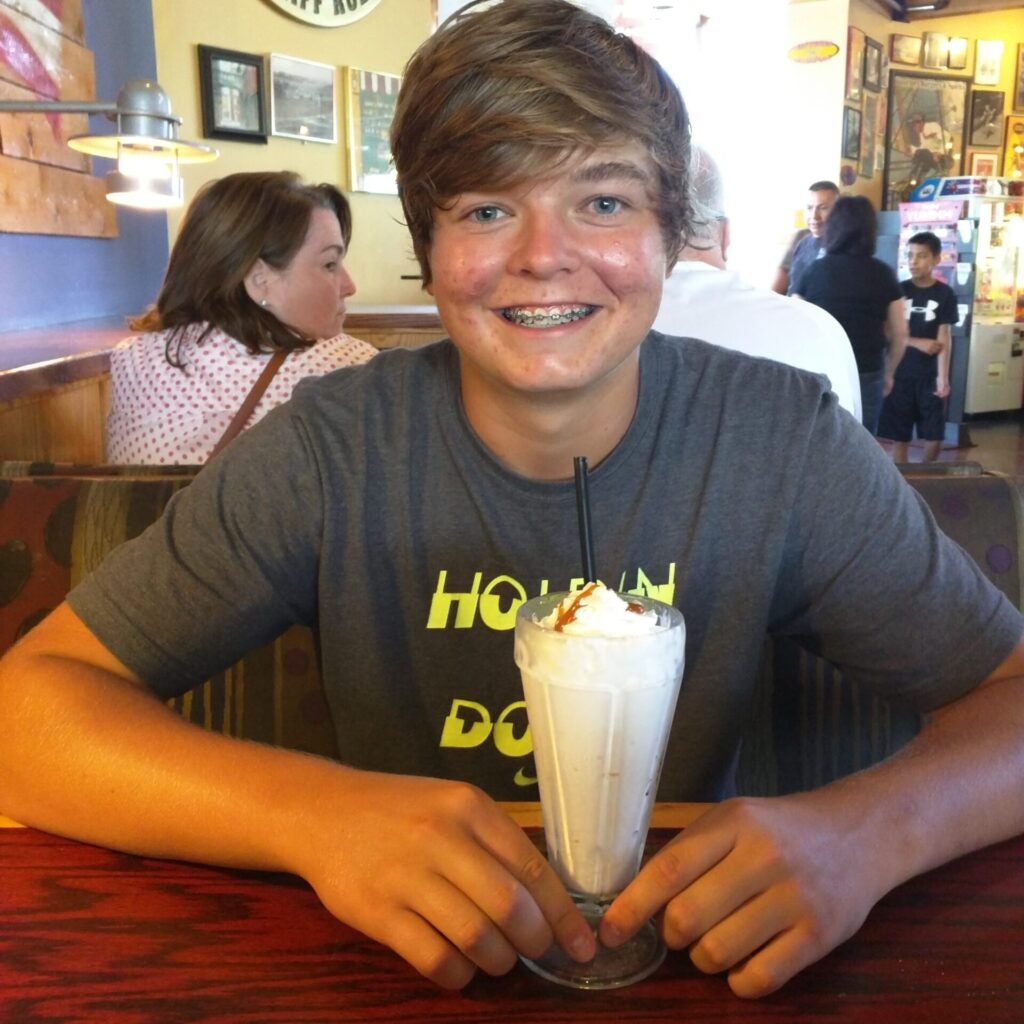
It wasn’t until last month that two officers were indicted by a grand jury in connection with Christian’s killing. Former deputy Buen, who fired the fatal shots, was charged with second-degree murder, official misconduct and reckless endangerment. Gould was his supervisor, watching remotely via body cam footage and ordering Buen to remove Christian from the car, according to the indictment. He’s been charged with criminally negligent homicide and reckless endangerment.
While authorities initially claimed that Christian tried to stab an officer outside of his vehicle, the indictment states that he did not pose a threat to law enforcement. The officer “at no point was in imminent danger of being stabbed by Mr. Glass and Mr. Glass never attempted to exit the vehicle,” it reads.
The grand jury wrote: “But for the decision by Gould to remove Mr. Glass from the vehicle there is no reason to believe that Mr. Glass would have been a danger to any law enforcement personnel, to himself, or to any member of the public. And the decision to remove him from the vehicle directly lead to the death of Mr. Glass.”
Buen’s partner on scene, Tim Collins, who had attempted to intervene when Buen “became verbally aggressive” with Christian, according to the indictment, decided to leave the department.
Buen and Gould were both fired by Clear Creek Sheriff Rick Albers following the indictment.
The unfathomable killing and confusing aftermath were shocking to the Glasses, who say they were raised to respect authority. Simon, especially, has always had “a lot of faith in the police” and tells The Independent that this “does shake your faith.”
He says: “It seems to me that you need to be very careful who you employ, if you employ bullies. And then when there’s problems ... [and] you take no action, then you’re just asking for trouble. And you’re basically putting these dangerous people around, driving around the place, in positions of power.”
“They think they’ve got immunity,” his wife interjects.
Simon continues, saying these officers “have to be held accountable” because “then it will stop, I think.”
“While they’re getting away with it, I mean, I don’t fully know they [might be] going down the pub tonight and having a good laugh about how, yeah, we showed up at court just for a bit of fun, you know ? Whatever,” he muses, before adding: “I don’t know what they think. We’ve never had any indication that there’s any remorse.”
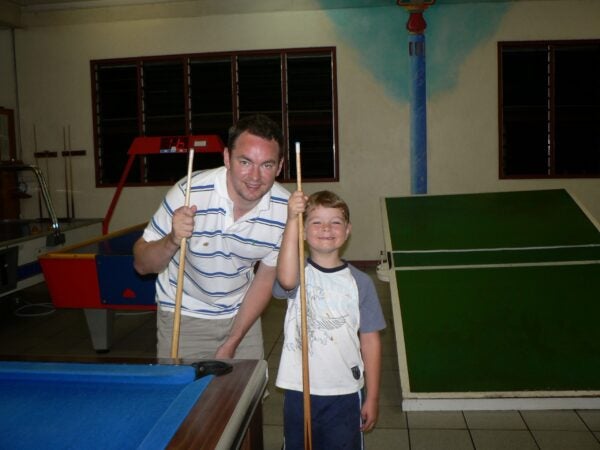
Christian would be “incensed” by the shooting, his parents say. They miss him desperately but still feel his presence.
Simon says he “felt it a lot” while back home in his native New Zealand, as he visited favourite family spots. Sally says she believes Christian’s spirit visited her in her hometown after his funeral at Brabourne Church of England, the same church where she and Simon got married, and now where Christian is buried with her mother.
Sally wants to see the officers in jail and for there to be accountability for any other officers deemed to be involved. Though, she notes, justice only goes so far.
“Even if he ends up in prison - I really hope he ends up in prison - he is still living, right?” she says of Buen, who fired the fatal shots. “And he will still get out. And maybe one day he’ll get married, and he’ll have children, and he’ll get to travel, and he’ll be able to live out his life. He won’t spend his whole life life in prison. I was feeling really depressed the other day, actually, when the indictments came out... I’ve just realised I do hope they go to prison. I think that would be the right thing to happen. And there may be a settlement. But none of it, none of it, none of it, brings back him back.
She emphasises, breaking down in tears: “None of it. Nothing.”
